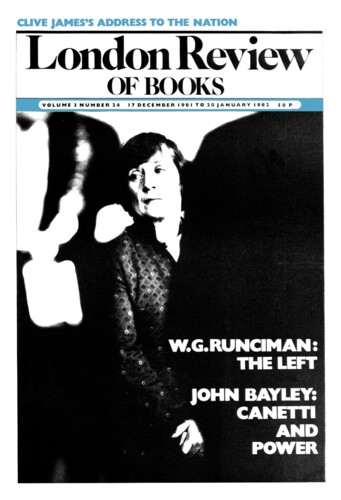Microcosm and Macrocosm
David Pears, 3 June 1982
There is an odd experience that Plato may have had. If light filters into a room through a small enough aperture, anything moving on the street outside will cast its shadow on the ceiling and back wall, and the shadow may have only the most abstract resemblance to the original. Perhaps the human predicament is really like that. The truth about the world may be difficult or even impossible to attain by ordinary methods.


